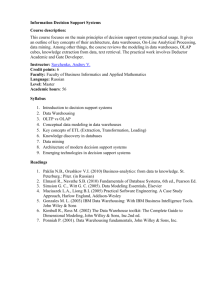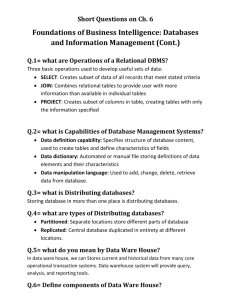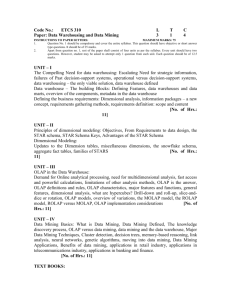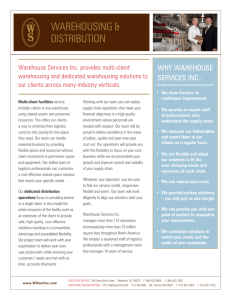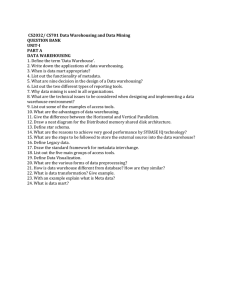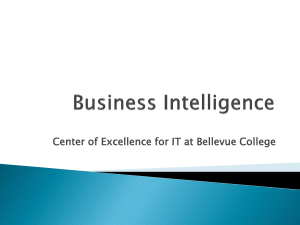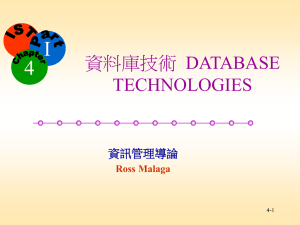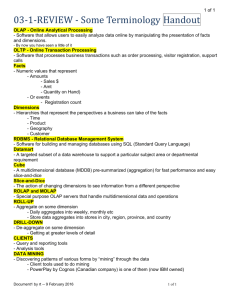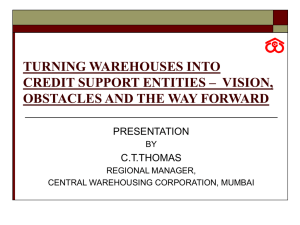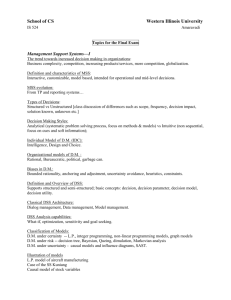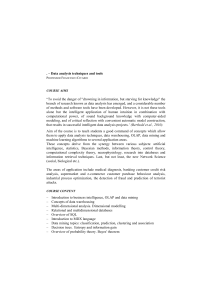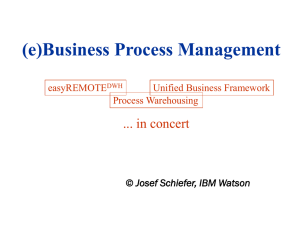Avoir Partner Institution: Uganda Martyrs University Avoir Masters
advertisement
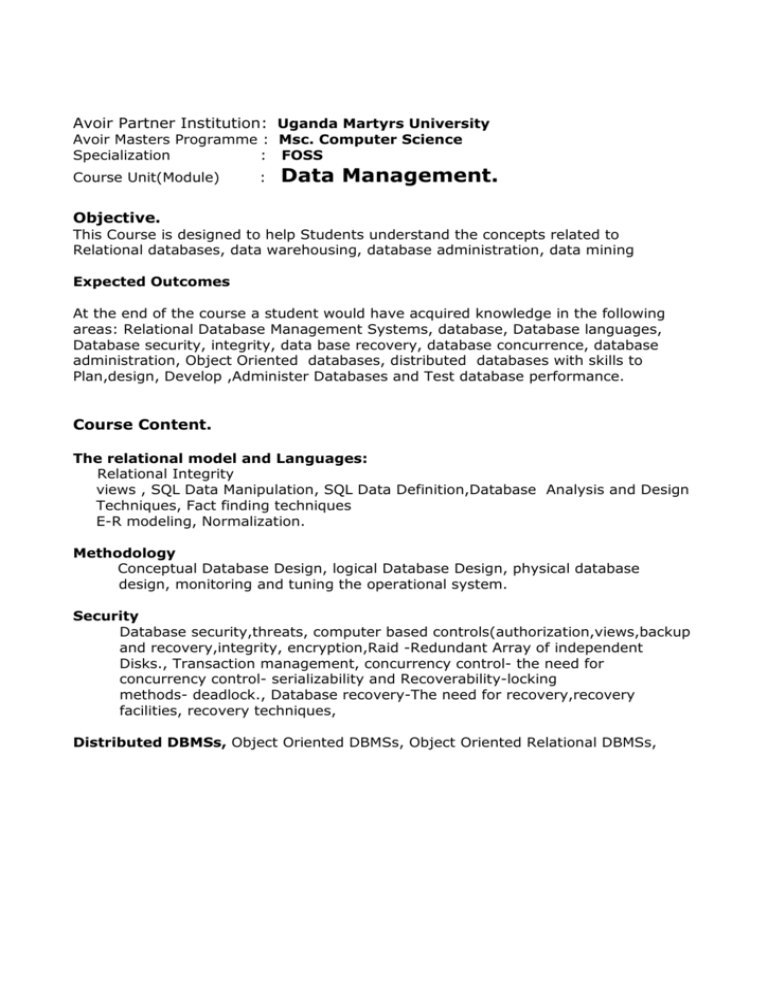
Avoir Partner Institution: Uganda Martyrs University Avoir Masters Programme : Msc. Computer Science Specialization : FOSS Course Unit(Module) : Data Management. Objective. This Course is designed to help Students understand the concepts related to Relational databases, data warehousing, database administration, data mining Expected Outcomes At the end of the course a student would have acquired knowledge in the following areas: Relational Database Management Systems, database, Database languages, Database security, integrity, data base recovery, database concurrence, database administration, Object Oriented databases, distributed databases with skills to Plan,design, Develop ,Administer Databases and Test database performance. Course Content. The relational model and Languages: Relational Integrity views , SQL Data Manipulation, SQL Data Definition,Database Analysis and Design Techniques, Fact finding techniques E-R modeling, Normalization. Methodology Conceptual Database Design, logical Database Design, physical database design, monitoring and tuning the operational system. Security Database security,threats, computer based controls(authorization,views,backup and recovery,integrity, encryption,Raid -Redundant Array of independent Disks., Transaction management, concurrency control- the need for concurrency control- serializability and Recoverability-locking methods- deadlock., Database recovery-The need for recovery,recovery facilities, recovery techniques, Distributed DBMSs, Object Oriented DBMSs, Object Oriented Relational DBMSs, Data warehousing concepts How data warehousing evolved The main Concepts and benefits associated with Data warehousing. Online transaction processing(oltp) systems and how they differ from data warehousing Problems associated with data warehousing The Architecture and main components of a data warehouse. The important data flows or processes of a data ware house; The main tools and technologies associated with data warehousing The issues associated with the integration of a data ware house and the importance of managing metadata The concept of a data mat and the main reasons for implementing a data mart. The main issues associated with the development and management of data marts. Data warehousing Design. The issues associated with designing a data warehouse database. A technique for designing a data ware house database called dimensionality modeling. How a Dimesional model (DM) differs from an ER model. A step-by step methodology for designing a data warehouse database. Criteria for assessing the degree of dimensionality provided by a data warehouse. OLAP and Data Mining The purpose of Online analytical processing(OLAP) and how it differs from data warehousing. The Key Features of OLAP Applications. The Potential benefits associated with Successful OLAP applications. The rules for OLAP tools and the main types of tools including multidimensional (MOLAP), relational OLAP and Managed query environment (MQE) tools. The OLAP extensions to SQL The Concepts associated with data mining. The main data mining operations including predictive modeling, database segmentation, link analysis,deviation detection and the associated techniques. The relationship between data mining and data warehousing. Text book Thomas, Connolly Carolyn Begg, Database systems A practical Approach to Designing, Implementation and Management.
